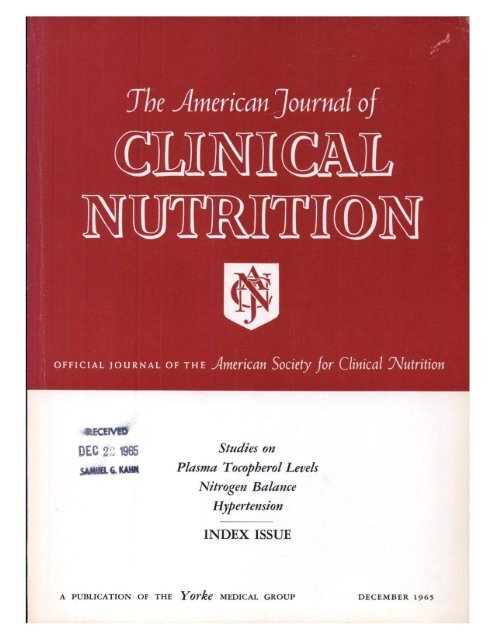在孟加拉国的一项随机对照试验中,饮食多样性作为怀孕期间补充多种微量营养素对低出生体重影响的调节因素。
IF 6.9
1区 医学
Q1 NUTRITION & DIETETICS
引用次数: 0
摘要
背景:对多种微量营养素补充剂(MMS)与铁叶酸(IFA)试验的荟萃分析表明,对低出生体重(LBW)的总体益处为12%。目的:在先前研究显示MMS对贫血和高BMI女性更有效的基础上,本文探讨饮食质量是否会改变MMS对出生体重的影响。方法:在孟加拉国的JiVitA-3群随机对照试验中,对19160名孕妇在妊娠后期进行了为期7天的食物频率问卷调查。采用10项膳食多样性评分(DDS),将每周食用≥4次的食物组数相加。用DDS估计MMS与IFA对LBW影响的风险比(RR)和95%置信区间(CI)。采用广义估计方程对数二项回归模型检验DDS和MMS之间的相互作用,以解释聚类随机化。在每个DDS中估计MMS对LBW影响的点估计值和95% CI。根据混杂因素对模型进行调整。我们使用p < 0.1来确定相互作用的统计显著性。结果:中位DDS为3 (IQR: 2-4), 18.6%的PW评分≥5。经充分调整后,MMS对LBW的保护作用与膳食多样性呈负相关[MMSxDDS RR: 1.02 (95% CI: 1.00, 1.04), p交互作用= 0.05]。DDS= 7, RR: 0.92(0.84, 1.00),分数越高,效果越明显[DDS= 1, RR: 0.86(0.81, 0.91)]。结论:在孟加拉国农村,产妇饮食多样性普遍较低,与IFA相比,MMS补充剂对饮食多样性最少的孕妇减少低出生体重的效果最强,这可能反映了补充剂对这一弱势群体的额外益处。临床试验:政府标识符:NCT00860470。本文章由计算机程序翻译,如有差异,请以英文原文为准。
Dietary diversity as a modifier of the effect of supplementation with multiple micronutrients during pregnancy on low birth weight in a randomized controlled trial in Bangladesh
Background
Meta-analysis of trials of multiple micronutrient supplements (MMS) compared with iron-folic acid (IFA) suggests an overall benefit of 12% on low birth weight (LBW).
Objectives
Building on prior work showing that MMS is more effective in anemic and higher body mass index females; this paper explores whether dietary quality modifies the effect of MMS on birth weight.
Methods
A 7-day food frequency questionnaire was administered in late pregnancy to 19,160 pregnant participants in the JiVitA-3 cluster-randomized controlled trial of MMS compared with IFA supplementation in Bangladesh. A 10-item dietary diversity score (DDS) was created by summing the number of food groups consumed ≥4 times per week. Risk ratios (RRs) and 95% confidence intervals (CIs) for the effect of MMS compared with IFA on LBW were estimated by DDS. The interaction between DDS and MMS was tested using a generalized estimating equations log-binomial regression model to account for the cluster randomization. Point estimates and 95% CI for the effect of MMS on LBW were estimated at each DDS. Models were adjusted for confounders. We used P < 0.1 to determine the statistical significance of the interaction.
Results
The median DDS was 3 (interquartile range: 2, 4), and 18.6% of pregnant women had a score ≥ 5. The fully adjusted protective effect of MMS on LBW was inversely associated with dietary diversity [MMS×DDS RR: 1.02 (95% CI: 1.00, 1.04), P-interaction = 0.05]. The effect was greatest at the lowest DDS [DDS= 1, RR LBW: 0.86 (0.81, 0.91)] and decreased at higher scores [DDS = 7, RR: 0.92 (0.84, 1.00)].
Conclusions
In rural Bangladesh, where maternal dietary diversity was generally low, MMS (compared with IFA) supplementation had the strongest effect on reducing low birth weight among pregnant females with the least diverse diet, possibly reflecting the additional benefit of supplementation in this vulnerable group.
This trial was registered at clinicaltrials.gov as NCT00860470.
求助全文
通过发布文献求助,成功后即可免费获取论文全文。
去求助
来源期刊
CiteScore
12.40
自引率
4.20%
发文量
332
审稿时长
38 days
期刊介绍:
American Journal of Clinical Nutrition is recognized as the most highly rated peer-reviewed, primary research journal in nutrition and dietetics.It focuses on publishing the latest research on various topics in nutrition, including but not limited to obesity, vitamins and minerals, nutrition and disease, and energy metabolism.
Purpose:
The purpose of AJCN is to:
Publish original research studies relevant to human and clinical nutrition.
Consider well-controlled clinical studies describing scientific mechanisms, efficacy, and safety of dietary interventions in the context of disease prevention or health benefits.
Encourage public health and epidemiologic studies relevant to human nutrition.
Promote innovative investigations of nutritional questions employing epigenetic, genomic, proteomic, and metabolomic approaches.
Include solicited editorials, book reviews, solicited or unsolicited review articles, invited controversy position papers, and letters to the Editor related to prior AJCN articles.
Peer Review Process:
All submitted material with scientific content undergoes peer review by the Editors or their designees before acceptance for publication.

 求助内容:
求助内容: 应助结果提醒方式:
应助结果提醒方式:


